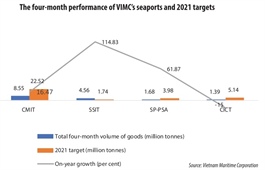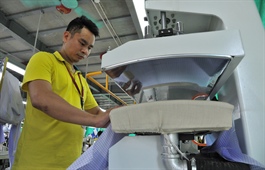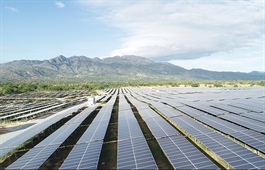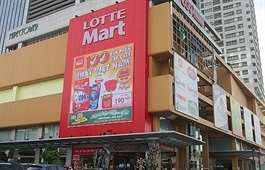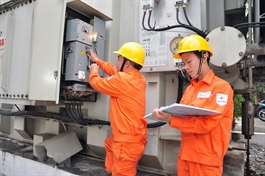Animal feed groups travel demand-driven M&A route
Animal feed groups travel demand-driven M&A route
Animal feed producers are stepping up their mergers and acquisitions in Vietnam as they are pinning their hope on the resilience of the market.
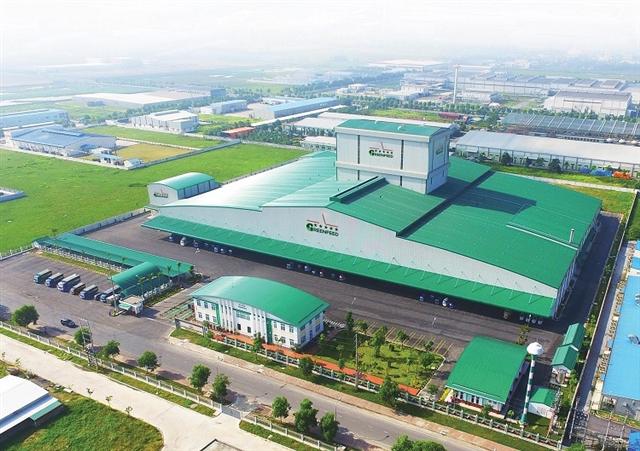
GREENFEED Vietnam
|
In April, ADM, a global leader in animal nutrition, announced that it is expanding its range of Wisium premix offerings in Vietnam with the acquisition of Golden Farm Production & Commerce Co., Ltd. Following the deal, Wisium will now serve customers in Vietnam with a state-of-the-art premix facility in the southern province of Dong Nai.
Eric Fabry, business director of Wisium Vietnam, told VIR that the country is one of the biggest markets for the animal industry in Southeast Asia. It has experienced a tremendous volume growth over the last 20 years and will continue to grow while becoming a more integrated, mature, and competitive market.
“Vietnam’s economy has performed consistently for the last 20 years as its people are improving their purchasing power year after year and increasing consumption of meat and seafood,” he said. “Despite COVID-19, the Vietnam market is very resilient. We strongly believe in the capacity of Vietnamese farmers and feed producers to react quickly and positively to the challenges they regularly face. Professionalism and performance are the key to their success, and this is where Wisium can bring all its technical added value by supporting them to produce quality feed at the best possible cost.”
ADM now has six production sites in Vietnam – three in Binh Duong province, one each in Ha Nam and Dong Thap, and now one in Dong Nai. These factories produce feed for livestock, poultry, pets, and aquatic life. Besides the acquisition of premix plant, ADM also invests in aqua by increasing the capacity of aqua nursery feed to meet the growing demand for Ocialis nursery feed in Vietnam and towards Asia.
In March, Danish feed manufacturer BioMar Group acquired a majority stake in Viet-Uc, one of Vietnam’s leading seafood groups operating in shrimp and fish hatcheries and shrimp farming.
Carlos Diaz, CEO of BioMar Group, said that the partnership paves the way for the company to enter the Vietnamese market, one of the world’s leading shrimp producing countries with a production close to 500,000 tonnes of shrimp. Considering the performance and agility of the Vietnamese shrimp industry during the last decade, the company is upbeat that the market holds a great potential for growth.
Last year, Leong Hup International Berhad (LHI), one of the largest fully-integrated producers of poultry, egg, and livestock feed in Southeast Asia, also took over a feed mill in Vietnam for approximately $15.8 million.
The asset, which currently produces only aquatic feed, has the capacity to produce nearly 119,000 tonnes of aquatic feed per annum, while LHI last year formulated plans to enhance the asset’s capacity and begin poultry feed production.
In addition to foreign companies, local players are also betting big on their businesses. Vietnamese group Masan is mulling an initial public offering to raise as much as $1 billion for its animal feed business Masan MeatLife.
The robust merger and acquisition activities of both local and foreign players are driven by the demand, which is not slowing down during the pandemic. In reality, the activities for livestock and aquaculture farming are still taking place to meet the demand. Based on Ipsos tracking data, Vietnam passed October 2020 as the bottom line of swine farming due to African swine fever (ASF). Swine farming is recovering at the moment and it forecasts a steady increment of swine farming, which is the key protein in Vietnam, until April 2022.
Phong Quach, head of Consulting at Ipsos Strategy3 Vietnam, pointed out three key factors influencing the feed market in the next five years – the impact of COVID-19, an antibiotics ban in farming, and the consolidation of the farming sector towards large farms.
There are significant challenges for feed millers in the short term including the shortage in logistics capability, negatively banging both import and export. The two latter key trends will amplify the impact of the pandemic in the future.
“Specifically, there will be less in terms of the number of players in the market. It means that either the smaller ones will exit or they will be acquired by the larger ones,” Quach said, adding that the competition among feed millers is becoming more intensive between those who have farms and those who have not.
According to the expert, some feed millers are not going the way of the feed and farm strategy, to build and operate farms. This strategy forces them to consider other strategies to be able to compete with those who have farms like C.P., who can perform internal sales of their feed to their farms.
Despite the challenges, animal feed producers are looking for the opportunities in the market. A representative of GREENFEED Vietnam shared with VIR, “The animal feed industry has been negatively impacted by COVID-19 and we are no exception. It has been tough dealing with rising costs of materials due to global logistical/transport difficulties. We’re adapting to the pace as well as the nature of the market in the pandemic era by trying to maintain stable production and business activities while optimising budget and streamlining our operation.”
GREENFEED Vietnam has just completed its clean food chain by supplying customers with processed pork products – fully controlled in every phases/stages. In 2021, the company is continuing the expansion of its distribution network and makes heavy investment in research and development to expand product portfolios.
Meanwhile, the American Feed Industry Association (AFIA) said it is implementing market access and development programmes for the US animal feed industry in Vietnam, as reported by FeedStrategy. The AFIA said its efforts will focus on updating technology, improving regulatory compliance, and upgrading input and management quality, leading to increased use of feed additives and expanded market share of US feed products in Vietnam, with a primary focus on the aquaculture and pet food industries.




